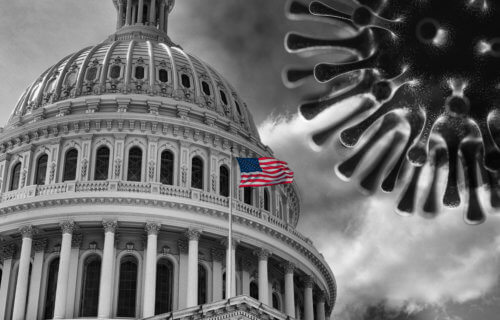SANTA MONICA, Calif. — It’s no secret trust in government continues to be on shaky ground, no matter which side of the political debate people stand on. While some have put their faith in Centers for Disease Control and Prevention to provide an unbiased view of the coronavirus pandemic, a new study finds even the CDC is not immune to the distrust people have for the federal government now. Researchers reveal public trust in the CDC has fallen significantly, with more whites and Hispanics turning away from the agency.
A team from the RAND Corporation adds trust in the CDC declined by 10 percent between May and October 2020. The drop brings the overall level of trust down to a point equal with African American support for the agency.
Despite facing plenty of political criticism, researchers surprisingly discovered trust in the U.S. Postal Service and the Federal Emergency Management Agency (FEMA) actually increased during the pandemic.
“The Biden administration will have an uphill battle in rehabilitating trust in the CDC at this critical junction in the coronavirus pandemic,” says lead author Michael Pollard, a senior social scientist for the nonprofit research organization, in a media release. “A key challenge in the months ahead will be to identify who will be viewed as trusted messengers regarding vaccines and public health policies.”
Who is losing faith in the CDC?
RAND researchers conducted two surveys of trust in federal agencies last year. The first featured 2,000 Americans in May 2020 and the second re-interviewed most of those respondents five months later. Each person ranked their trust in the CDC, USPS, and FEMA on a scale of zero to 10.
The results reveal Caucasians and Hispanic Americans both reported major declines in trust in the CDC amidst the pandemic. To their surprise, study authors did not find any significant level of change among Blacks or “other race” respondents.
“There is remarkable consistency and convergence in reported levels of trust in the CDC across these subgroups after the declines,” Pollard adds. “Lack of trust among Black Americans has been a well-publicized concern regarding the COVID-19 vaccine rollout, and the convergence in lower levels of trust across race/ethnicity highlights a key challenge that the CDC now faces.”
Researchers note that Blacks have historically maintained a low opinion of the CDC and other health agencies. Much of this may be due to long held perception of disparity in the nation’s health care system.
With whites and Hispanics joining this discontent, trust in the CDC fell from 7.6 out of 10 in May to 7.0 by October. Meanwhile, public trust in the Postal Service rose from 6.9 to 7.7 and trust in FEMA went from 6.4 to 6.7.
The politics of the pandemic
The RAND report finds many people who now distrust the CDC have something else in common, disapproval of Joe Biden. Researchers reveal the biggest drops in CDC trust come from Americans who either did not vote or voted for another candidate besides Biden in 2020.
“The public trust in federal government agencies has never been as important as during the current COVID-19 pandemic, yet public suspicions of scientific experts and distrust of government institutions are increasing for a variety of reasons,” notes Lois Davis, senior policy researcher at RAND. “Reasons for this include a blurring of the line between opinion and fact, and access to more sources of conflicting information.”
RAND says if the CDC wants more Americans to trust their judgement during COVID-19, they need to depoliticize their messaging. To do this, researchers say the agency must make sure the public understands the “scientific rationale” for their safety advice.
The study appears in RAND’s report, “Decline in Trust in the Centers for Disease Control and Prevention During the COVID-19 Pandemic.”
